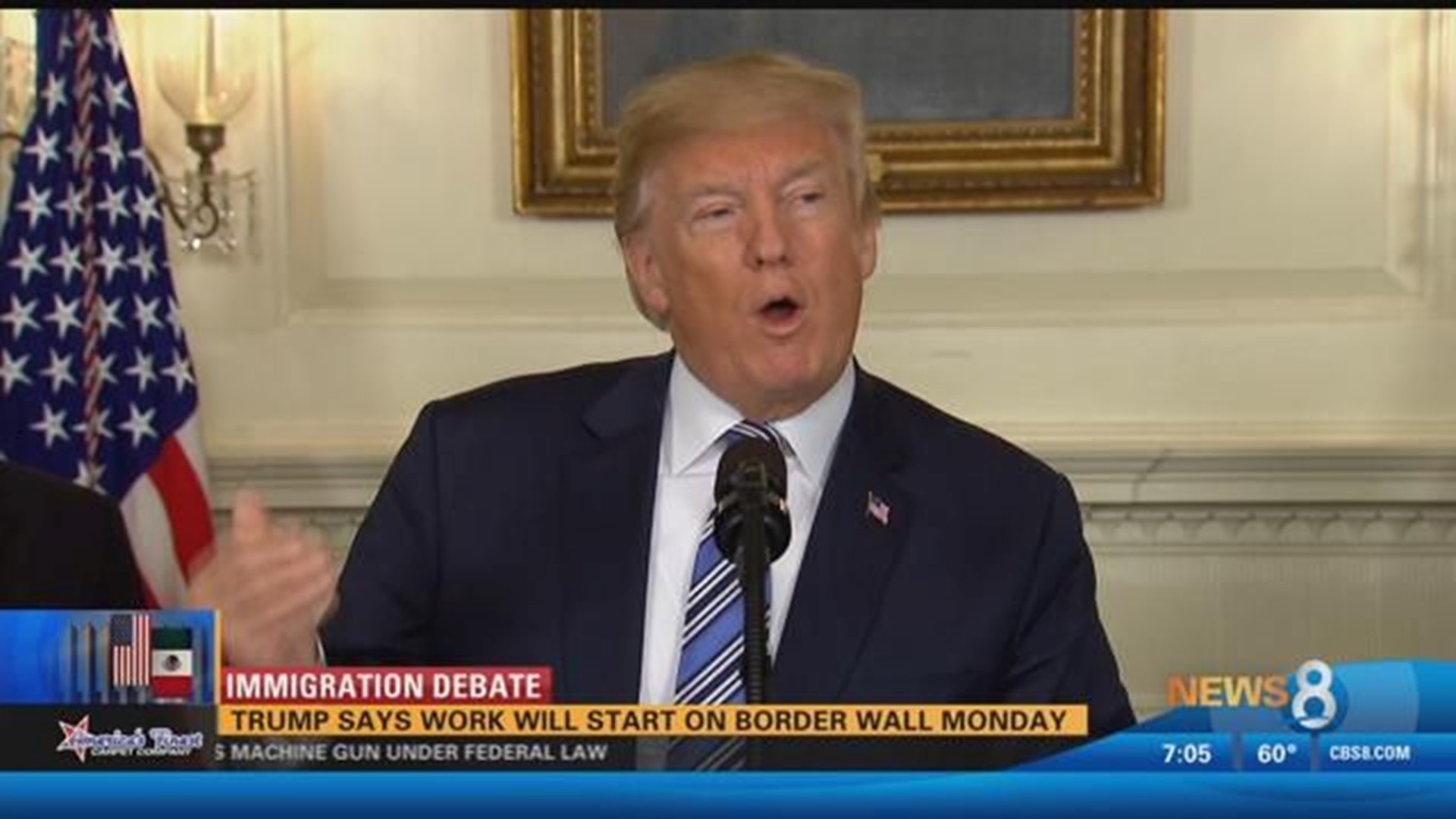SAN DIEGO (AP) — Congress gave President Donald Trump the $1.6 billion he wanted this year for his proposed "big, beautiful" border wall with Mexico but the headline number masks what he didn't get on one of his signature campaign promises. Here are some questions and answers about the wall's status:
WHAT DID TRUMP GET?
Trump got the $1.6 billion he sought for one year of funding but he wanted a long-term wall financing commitment.
In January, the administration proposed $25 billion over 10 years for the wall in a package that would have included a path to citizenship for 1.8 million young immigrants and sharp cuts to legal immigration. That effort failed.
Trump wanted to spend the $1.6 billion on 60 miles (96 kilometers) of new wall in Texas' Rio Grande Valley, the busiest corridor for illegal crossings, and 14 miles (22.4 kilometers) of replacement in San Diego.
Instead, he will get about 90 miles (144 kilometers) — more than what he sought — but the balance shifts more toward replacement wall than new miles and the money comes with strings attached.
WHAT DOES THE WALL LOOK LIKE NOW AND HOW WILL IT LOOK IN A YEAR?
Barriers currently blanket 654 miles (1,046 kilometers) of the 1,954-mile (3,126-kilometer) border. The bill will add about 33 miles (53 kilometers) in Rio Grande Valley, bringing the total to 687 miles (1,099 kilometers).
It allows 25 miles (40 kilometers) of new wall made of levees in Rio Grande Valley for $445 million. That's 3 miles (5 kilometers) less than what Trump wanted because Congress declared the Santa Ana Wildlife Refuge in Texas off-limits to construction.
Congress is giving $196 million for new bollard-style barriers in Rio Grande Valley, which encompasses more than 300 miles (483 kilometers) of river and cities including Brownsville and McAllen on Texas' southern tip. That money is expected to add 8 miles (13 kilometers).
The bill sets aside $251 million to replace 14 miles (23 kilometers) in San Diego, just as Trump asked.
It also marks $445 million for other replacement barriers. The administration has not given mileage or locations, but it is expected to provide 45 miles (72 kilometers), which averages to about $10 million a mile (1.6 kilometers).
A recent replacement in the small town of Naco, Arizona, averaged just under $6 million a mile, and replacement work that began last month in the small city of Calexico, California, will cost about $8 million a mile.
The Government Accountability Office estimates that new wall costs an average of $6.5 million a mile, but terrain, building materials and other factors influence costs. The Rio Grande's winding waters and lush vegetation are more challenging for erecting walls than Arizona's flat deserts.
WHAT STRINGS ARE ATTACHED?
Aside from the construction ban in the Santa Ana Wildlife Refuge, the bill requires that wall construction this year sticks to existing designs that have proven effective. The administration had planned to issue bidding guidelines that draw on elements of eight prototypes that were completed in San Diego in October.
The prototypes — four made of concrete and four of see-through steel — are about 30 feet (9.1 meters) high, much taller than existing barriers. Trump visited the prototypes this month and has expressed preference for a see-through capability, heeding advice from senior Border Patrol officials.
Contracts for construction in Rio Grande Valley and San Diego have yet to be put out to bid but Trump promised quick action on the wall during a news conference Friday. Next year, the administration has requested $1.6 billion for 65 miles (104 kilometers) of new wall in Rio Grande Valley.
Trump's repeated insistence that Mexico pay for the wall has gained no traction with Mexico's leaders.
___
Mascaro reported from Washington.

